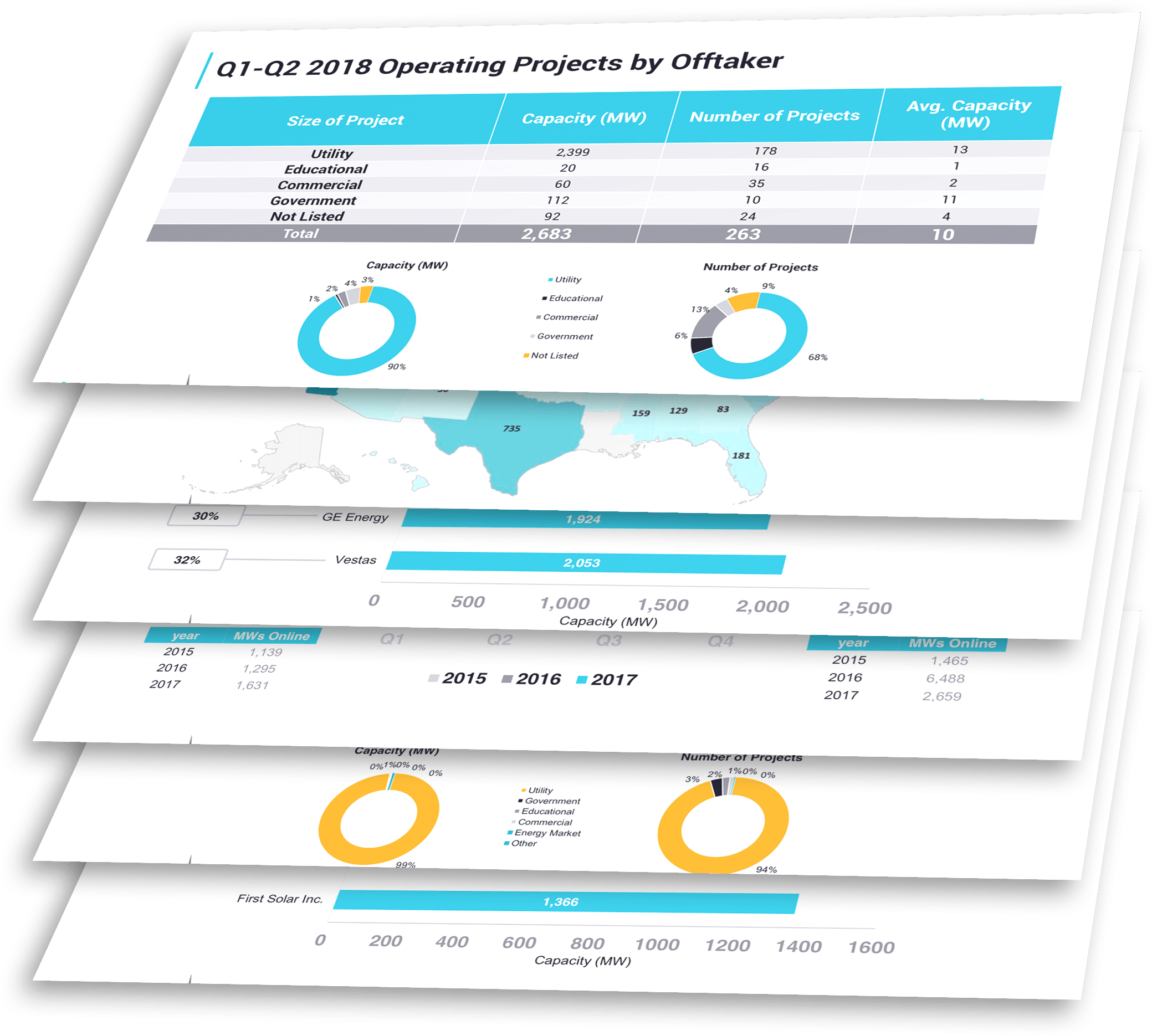
The Section 201 Solar Trade Case is a tariff dispute focused on the price of solar panels in the U.S. imported from China. The U.S.-based solar panel manufacturing company Suniva claims that Chinese solar panel manufacturers are “dumping” panels into the U.S. market at a lower price to drive down competition.
We believe Suniva has a case. But if the trade dispute results in tariffs on imported solar panels it will increase panel prices in the U.S. This will have a wide-ranging impact on U.S. solar projects, making them more expensive and harder to develop. To date, there has never been more development in the United States, and this is due to competitive pricing in the industry; this will all change if tariffs are enacted.
As part of our coverage of the electric power industry, Energy Acuity has been closely monitoring the ongoing 201 Trade Case. The final ruling could significantly disrupt the U.S. solar market and energy sector for years to come. We surveyed over 500 companies within the industry to gauge reactions to the case. Here is a snapshot of what we learned.

The chart below shows that more than 75% of the 500 companies who responded to our survey anticipate that their business activity will be affected by the outcome of the 201 Trade Case. This response illustrates how closely the solar industry is monitoring this event.

More than half of the responding companies indicated an intention to scale back business activity in the U.S. solar market if the Section 201 Solar Trade Case results in protectionist policies. Interestingly, a sizable minority of respondents (21%) don’t think their businesses will be affected, and another 24% say they would scale up development in another country as a result.
If this protectionist policy passes, solar industry players have made their intentions clear: They are prepared to decrease solar development in the U.S., with some business being lost to foreign countries.

Of the companies considering scaling up their activity in international markets, here are the regions they are considering:

This type of market insight is what we at Energy Acuity specialize in. Even if companies leave the U.S. and go to foreign countries, we will be able to equip solar developers with information that can help them find leads in foreign markets. (You can learn more about how we do this in the Energy Acuity Renewables Database.)
Finally, we asked respondents to characterize how their business strategies have already been altered in response to the Section 201 Trade Case. Here’s what they said:

These statements clearly show that companies are already reacting to this threat. The solar industry, which has been an impressive job creator and a very active segment of the renewable energy industry, is threatened by just the mention of protectionist policy. To provide more context to those anticipated contractions, here is a breakdown of those projections by company type:

These charts show which subsets are most concerned with the threat of protectionism in the U.S. market. What stands out here is that suppliers’ projections for growth are being cut significantly: If the price of solar panels goes up, suppliers in the marketplace will decrease the capital they bring in the market.
One interesting note: We can’t assume that all the suppliers who responded to this survey are solar panel suppliers—solar suppliers include solar mounting systems, tracking tools to follow the pitch of sun, inverters, transformers, cable connections, and other manufactured parts. It’s not only solar panel producers in the U.S. who would see their business harmed — but affiliated component manufacturers would also be affected by this policy.
Solar developers fall right alongside suppliers; for example, our data shows that 33% of developers will decrease their employee hires. Obviously, this is a picture of an industry that will contract if protectionist policies are put in place.
Final Thoughts
It is clear that the final ruling—whatever it may be—on the Section 201 Solar Trade Case will have an impact on the entire solar industry. When that time comes, you can count on us for an update.
Source: Energy Acuity
Looking for solar project details and intelligence? Request a Free Demo of the Energy Acuity PlatformToday!
Energy Acuity (EA) is the leading provider of power generation and power delivery market intelligence. Founded in 2008, EA was built on the principle that essential energy market research could be conducted and presented more efficiently than the traditional third-party data providers.
EA’s unique approach merges primary research, public resource aggregation, web monitoring and expert analysis that is delivered through a simple, dynamic online platform. This allows our clients to focus on actionable information and win business over the competition.


